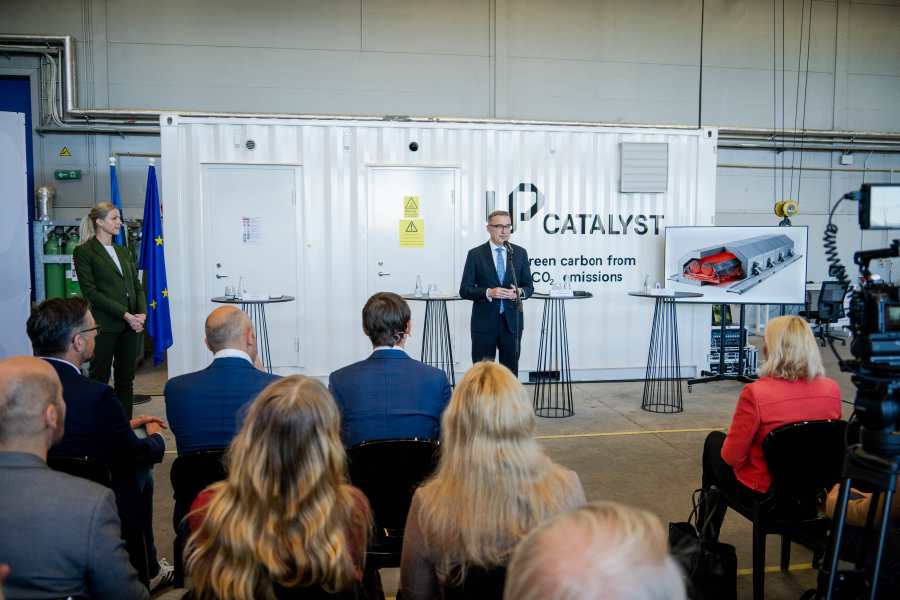Tallinn-based Climate Tech startup Up Catalyst has secured a 18 million euro venture loan from the European Investment Bank (EIB). The funding will help expand the electrolysis process of molten salts, turning industrial emissions into graphite and carbon nanotubes. These materials are used in everything from electric vehicle batteries and defense equipment to paints, polymers and concrete.
Transform CO2 emissions into sustainable carbon materials
Its efficiency is what constitutes the Catalyst approach. This process uses significantly less energy than traditional fossil-based methods and can serve as a large-scale low-emission alternative. As things move along with plans, the company says it can supply up to 50% of Europe’s graphite demand gap in the coming years.
“A key pillar for us is funding innovative net-zero technologies that will help reduce the negative impacts on the climate and the environment while enhancing Europe’s competitiveness.” “Up Catalyst embodies this vision by pioneering innovative and impactful carbon capture and utilization solutions.”
EIB’s funding will be provided as part of the InvestEU initiative aimed at supporting sustainable industry efforts and reducing Europe’s reliance on imported raw materials. Up Catalyst has already moved beyond the lab to commercial production, and its products are now being verified in 2025 with large battery cells using Gen3alpha.
“Securing EIB funding is an important milestone for UP catalysts, as it directly supports the company’s strategic mission to address the expansion of graphite, a key raw material of EU, the US, South Korea and Japan.” “In addition to verifying our innovative technology and local production capacity, our collaboration with EIB shows that Catalyst is at the forefront of strengthening the resilience of the EU industry and strengthening manufacturing in the transition to a more independent product supply chain.”
The company has recently confirmed that its graphite matches the quality of its fossil-based alternatives, opening more doors to energy storage and defense. With EIB support, UP Catalyst aims to increase production to 1,350 tons of green graphite per year and 270 tons of carbon nanotubes per year by 2027. This requires the disposal of approximately 6,000 tonnes of CO each year.
The startup opened a new production facility in Estonia in 2024 and launched an in-house carbon material testing and verification service. Its production process is one of the lowest carbon dioxide emissions of battery grade graphite, according to a lifecycle assessment of cradle-to-gates, and is the lowest in carbon nanotubes.
Up Catalyst was recently appointed by the European Commission as a strategic project partner under the Critical Raw Materials Act (CRMA). This plays a major role in the EU’s plan to protect raw materials from within the borders.
By expanding both production and cost-effectiveness, Up Catalyst bets that Europe can become a trusted local supplier when it is in a hurry to increase manufacturing resilience. The EIB appears to think they are on the right track.
Source link

